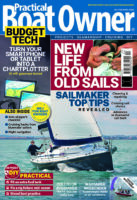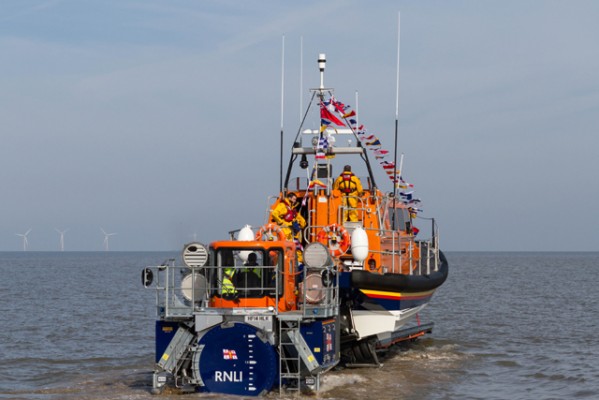A hoax Mayday call led to the launching of Hoylake’s RNLI lifeboat in gale force winds and rough seas.
Holyhead Coastguard requested that the lifeboat search an area near the entrance to the buoyed channel of the River Mersey to find the source of a plea for assistance from a yacht heard on marine band radio.
A Search and Rescue helicopter from RAF Valley in Anglesey was also tasked to the search.
The Mayday call was picked up by Mersey VTS, who control shipping movements in the River Mersey, shortly after 2pm on Tuesday.
As soon as the Coastguard was informed they requested that Hoylake RNLI lifeboat be launched to search for the yacht believed to be in distress.
The weather conditions were poor with a rough sea and big swell and winds gusting up to gale force.
Hoylake’s lifeboat with a volunteer crew of six searched in vain for over three hours to find the source of the Mayday call before returning to station when the rescuers realised it was a hoax.
Navigator and mechanic Chris Williams said: ‘Being volunteers we are always prepared to go out in any weather to do the job we train so hard for.
‘Putting our lives unnecessarily at risk in appalling conditions is not what we expect. I cannot understand what makes someone make a hoax call like this.
‘Quite apart from wasting the money provided through the generosity of the British public, the lifeboat was diverted from what could have been genuine life-saving tasks. Such actions are extremely irresponsible.’
Senior Maritime Operations Officer Richard Jones at Holyhead Coastguard said: ‘This type of incident can endanger the lives of volunteers who respond to call outs. They can prevent Search and Rescue resources from responding to genuine incidents.’
A spokesperson for RNLI Headquarters said; ‘We would like to emphasise that hoax calls not only endanger the lives of our volunteer lifeboat crews, but they also tie up valuable lifesaving resources which could place those in genuine need of help in worse danger.
‘Operations of this nature waste the funds of the RNLI, a charity that relies on donations and legacies, as well as the time and money of other agencies involved in search and rescue at sea.’




